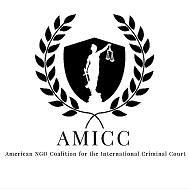There is widespread hostility
to references to international law in U.S. court decisions. It is therefore
especially surprising that U.S. federal judges have been discussing the Rome
Statute (Statute) in their decisions, and sometimes citing it as an authority.
In between November 9th, 2009
and July 14th, 2014, the International Criminal Court (ICC) and the Rome
Statute have been mentioned in U.S. judicial decisions twenty-one times,
despite the U.S. not having ratified the Statute. The Fourth Circuit has stated
that although the Statute is not binding on the U.S., it “does not lessen its
import as an international treaty, and thus, a primary source of the law of nations.”
Aziz v. Alcolac, Inc., 653 F.3d 388,
400 (4th Cir. 2011). The Statute appears in various contexts; the five most
frequent situations involve the intent (mens rea) standard in aiding and
abetting, immunity, corporate liability, defining crimes against humanity and
defining war crimes.
The majority of the listed
cases involve plaintiffs filing claims under the Alien Tort Claims Act (ATCA).
The ATCA allows U.S. federal courts to hear civil suits brought by victims of
human right abuses or other international crimes which are in violation of the
laws of nations or a treaty that the U.S. has ratified. In Sosa v. Alvarez-Machain, 542 U.S. 692 (2004), the Supreme Court held
that the laws of nations are comprised of international norms that are accepted
by the civilized world and defined with specificity. For more information on the cases, visit AMICC's website.
Aiding and Abetting:
Aiding and abetting is a form
of secondary actor liability. The issue with this area of law is what level of
mens rea is required. Article 25(3)(C) of the Statute provides that a person
shall be criminally responsible and liable for punishment if that person
facilitates the commission of such a crime, aids, abets or otherwise assists in
its commission or its attempted commission, including providing means for its
commission. The courts have looked to the Statute because customary
international law is unclear on a mens rea requirement for aiding and abetting.
The courts have been divided in their interpretation of this requirement.
Some of the decisions use the
definition provided in Article 25 of the Statute. See, e.g., Lui Bo Shan v.
China Constr. Bank Corp., 2010 U.S. Dist. LEXIS 63938 (S.D.N.Y. June 28,
2010). Other decisions have refused to use the Statute. See, e.g., Du Daobin v. Cisco Sys., 2014 U.S. Dist. LEXIS 22632 (D.
Md. Feb. 24, 2014)(the plaintiffs wanted to look at the Rome Statute and apply
a lesser mens rea standard of knowledge but the court refused to do so because
of a domestic precedent that settled the issue).
However, a few courts have
used very strong language in support of the Statute. In Doe v. Drummond Co., 2009 U.S. Dist. LEXIS 132594 (N.D. Ala. Nov.
9, 2009), the court relies in part on the Statute for the appropriate aiding
and abetting standard. In Aziz v.
Alcolac, Inc., 653 F.3d 388 (4th Cir. 2011), the court concluded that
adopting the standard in the Rome Statute “hews as closely as possible to the Sosa limits of requiring any claim based
on the present-day law of nations to rest on a norm of international character
accepted by the civilized world and defined with a specificity comparable to
the features of the 18th century paradigms the Supreme Court has recognized.” Aziz, 653 F.3d. at 400-401 (Internal
citations omitted). The court in Aziz
goes on to say that the Statute’s mens rea standard for the crime of aiding and
abetting “is more authoritative than that of the ICTY and ICTR Tribunals.” Id. at 400.

